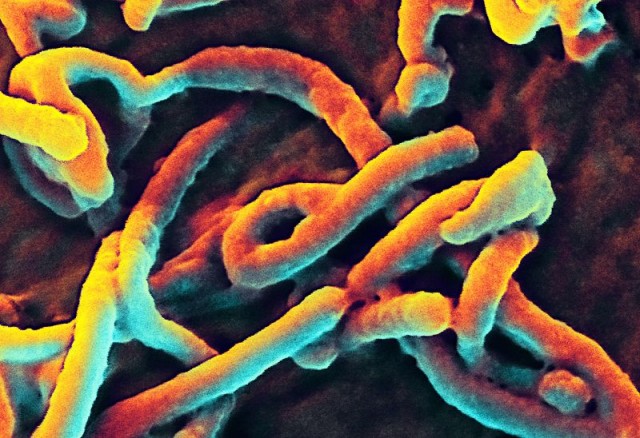New Ebola Outbreak Strikes the Congo
World Health Organization hopes to avoid mistakes leading to 2014 epidemic.

An Ebola outbreak has been declared in the Democratic Republic of Congo after 17 people have succumbed to the virus.
The outbreak declaration was made after laboratory results confirmed two cases of Ebola out of a sample of five suspected patients, the World Health Organization (WHO) said.
“Our top priority is to get to Bikoro to work alongside the government,” the WHO’s Peter Salama said in a statement.“Working with partners and responding early and in a co-ordinated way will be vital to containing this deadly disease.”
The international health organisation says it has released $1m (£738,000) from an emergency fund and has deployed more than 50 experts to work with officials in the country.
This is the most significant outbreak since the 2014/2015 outbreak that was spread to several Americans and left thousands dead.
This is the ninth Ebola outbreak in Congo since 1976, when the deadly disease was first identified. Congo has a long track record with Ebola, WHO said.
The most recent outbreak was in May 2017 that killed four of the eight people infected in Congo’s Bas-Uele province in the northeast. That outbreak was quickly contained and was declared over in July 2017.
None of these outbreaks was connected to the massive outbreak in Guinea, Liberia and Sierra Leone that began in 2014 and left more than 11,300 dead.
As a reminder, the six Americans were all healthcare workers: Dr. Kent Brantly, Dr. Rick Sacra, aid worker Nancy Writebol, nurse Nina Pham, nurse Amber Vinson and Dr. Craig Spencer in the 2014/2015 outbreak. Though they were severely ill, all have expressed a willingness to tend Ebola patients again.
I’m thankful for God’s grace and the second chance and the opportunity just to continue to serve, possibly back in Liberia,” said Writebol, who developed Ebola in July while caring for patients in Liberia.
“I’m thankful for the opportunity to go back,” said Scara, who also contracted the virus while on a health mission to Liberia.
Pham and Vinson both developed Ebola in Texas while treating the first patient to be diagnosed on U.S. soil. Both said they’re happy to care for all patients ― even those with the deadly virus.
Meanwhile, research continues on Ebola proteins and antibodies in a quest for a cure that is effective on all strains of the virus.
The World Health Organization is sending aid and supplies to quash the spread of the disease, and neighboring countries have been notified. It is important to note that the World Bank stated last year that Earth isn’t ready for an ‘inevitable’ pandemic, using information gathered during the 2014 crisis.
The research was done in an attempt to assess why the global response to the Ebola pandemic was so sloppy and to fill those gaps before another disaster strikes.
The 2014 international Ebola response drew criticism for moving too slowly and prompted an apology from the WHO.
A study released last year also suggested disease ‘superspreaders’ fueled the transmission of the 2014 Ebola epidemic.
Hopefully, there is no such ‘superspreader’ among those currently infected.
 DONATE
DONATE
Donations tax deductible
to the full extent allowed by law.








Comments
Maybe quarantine this time? That should keep it out of the states.
Good grief. This is such a horrid disease. It can devastate large populations in short order – particularly when the crisis is mismanaged.
Please, Barack Obama, go to Africa with your considerable powers of persuasion and superior management skills in order to deal with this problem. The world will thank you.
Let’s encourage all those in the Congo to immigrate to the U.S. so they can escape the Ebola outbreak. What could go wrong?
The only good thing about a disease like this is, it kills so rapidly that it’s unlikely to ever become endemic. Slow killers are no less deadly, but because they kill slowly outbreaks they burrow into communities instead of just burning themselves out.
The downside is, it can kill many people quickly. And it’s so horrific that if there ever is a major outbreak here, many near the outbreak may flee, and, at least a few of these likely will already be infected.
Of course, it might mutate into a less virulent form, as “new” (new to humans, that is) pathogens often do. Which will not necessarily minimize its threat.
Perhaps our public health apparat might focus on the containment of communicable diseases again, instead of trying to define gun violence (and mass shootings) and other dangerous behaviors as the primary focus of public health?